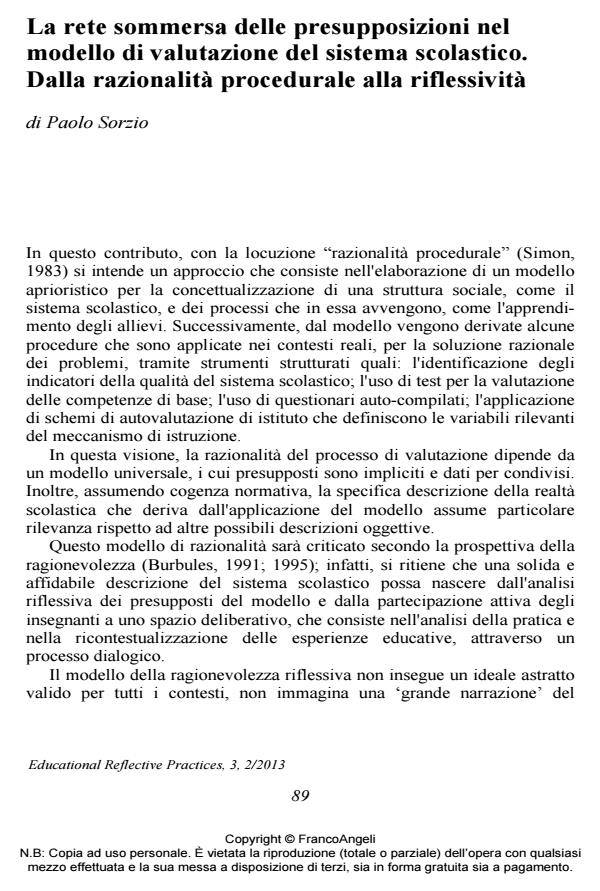La rete sommersa delle presupposizioni nel modello di valutazione del sistema scolastico. Dalla razionalità procedurale alla riflessività
Journal title EDUCATIONAL REFLECTIVE PRACTICES
Author/s Paolo Sorzio
Publishing Year 2014 Issue 2013/2
Language Italian Pages 13 P. 89-101 File size 549 KB
DOI 10.3280/ERP2013-002006
DOI is like a bar code for intellectual property: to have more infomation
click here
Below, you can see the article first page
If you want to buy this article in PDF format, you can do it, following the instructions to buy download credits

FrancoAngeli is member of Publishers International Linking Association, Inc (PILA), a not-for-profit association which run the CrossRef service enabling links to and from online scholarly content.
In this paper, the epistemology of the High-Stakes test-based accountability of schools is analysed and its consequences on practice are scrutinised. More specifically, three dimensions of the rationality incorporated in the procedural models elaborated by the National Institute for the Evaluation of the School System (Invalsi) are highlighted: the evaluation of schools through the use of students' performances on standardised tasks; the nature of the socio-economical-cultural parameters that are selected to compare the educational contexts of school provision; the proposed model to represent the learning environment of individual schools. The use of simplified parameters to describe complex socio-cultural realities and the selective focus on a limited variety of relevant evidence in the Invalsi model are examined and the risk of introducing distortions in the evaluation of the educational provision is considered. As an alternative, a perspective based on 'reflective reasonableness' (Burbules, 1991, 1995) is introduced, in order to recognise the plurality of valid descriptions of the school system, the relevance of ethnographicallygenerated evidence in understanding the quality of teaching in specific schools and the importance of valuing the voice of teachers in identifying and solving the constraints of their everyday practice
Paolo Sorzio, La rete sommersa delle presupposizioni nel modello di valutazione del sistema scolastico. Dalla razionalità procedurale alla riflessività in "EDUCATIONAL REFLECTIVE PRACTICES" 2/2013, pp 89-101, DOI: 10.3280/ERP2013-002006